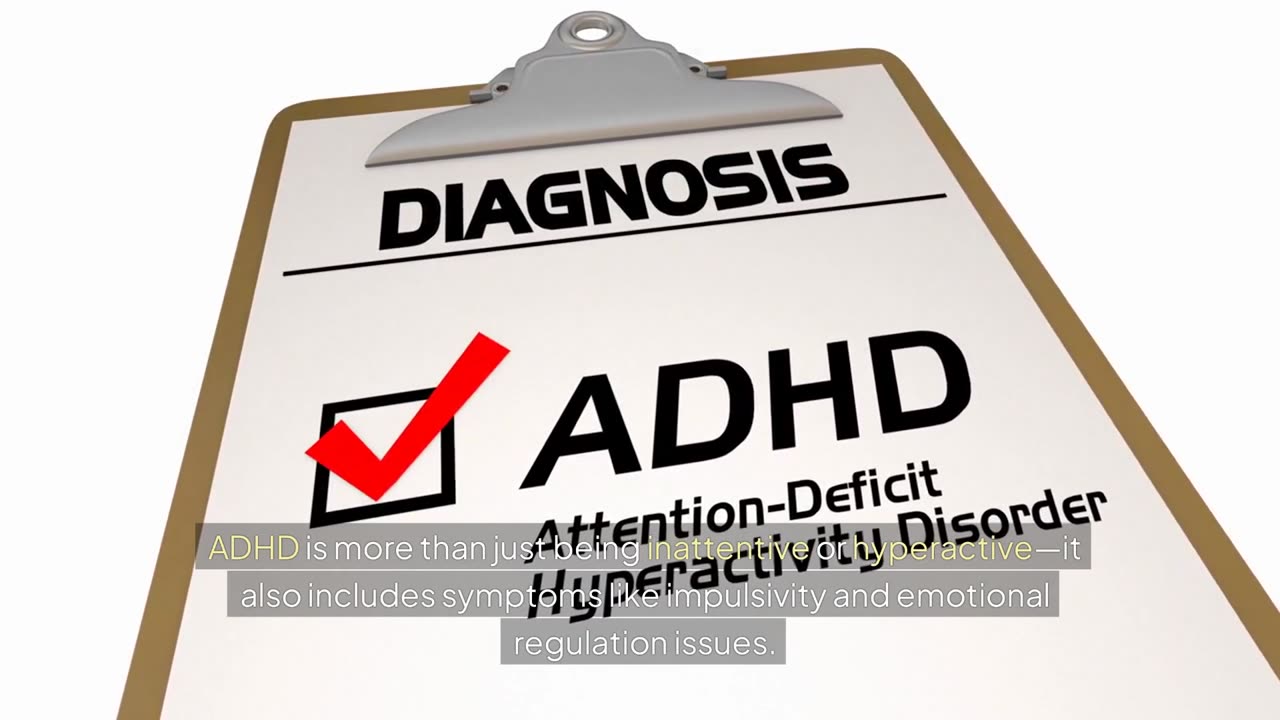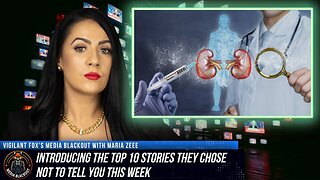Premium Only Content

ADHD: Misunderstood, Underdiagnosed—and Treatable
ADHD affects 1 in 9 children in the U.S., according to the CDC, and more than 8% of college students. Despite this, many students struggle silently, battling distractions, incomplete assignments, and social challenges. Some even forget to take the medication that can help manage their symptoms.
Andrea Chronis-Tuscano, a leading expert on ADHD, explains that this neurodevelopmental disorder—marked by inattention, hyperactivity, impulsivity, and emotional dysregulation—can have a huge impact, but it’s highly treatable.
October is ADHD Awareness Month, and here’s what you need to know:
1. **ADHD is Treatable**
ADHD can be managed through various treatments like behavioral therapy, cognitive therapy, organizational skills training, and medication. Chronis-Tuscano highlights that many individuals with ADHD find their strengths, adapt, and thrive. Seeking help from a doctor is the first step towards diagnosis and treatment.
2. **Untreated ADHD Can Have Serious Consequences**
If left untreated, ADHD can lead to severe issues, including depression, substance abuse, and even suicide. Chronis-Tuscano stresses that ADHD isn’t just about being forgetful or unmotivated—it’s a serious condition that can shorten life expectancy by 10 to 15 years.
3. **Disparities in ADHD Diagnosis and Treatment**
Not everyone has easy access to diagnosis or treatment due to factors like socioeconomic status, lack of healthcare access, or stigma. There's also a gap in recognizing ADHD in girls and women, as symptoms often present differently compared to boys.
Understanding ADHD and breaking down the stigma can help more people access the care they need and improve their lives significantly.
-
 LIVE
LIVE
vivafrei
8 hours agoEp. 251: Bogus Social Security Payments? DOGE Lawsduit W's! Maddow Defamation! & MORE! Viva & Barnes
23,701 watching -
 LIVE
LIVE
Josh Pate's College Football Show
1 hour agoBig Ten Program Rankings | What Is College Football? | Clemson Rage| Stadiums I Haven’t Experienced
280 watching -
 LIVE
LIVE
Vigilant News Network
7 hours agoBombshell Study Reveals Where the COVID Vaccine Deaths Are Hiding | Media Blackout
1,975 watching -
 1:17:59
1:17:59
Sarah Westall
3 hours agoDOGE: Crime & Hysteria bringing the Critics & the Fearful - Plus new CDC/Ukraine Crime w/ Dr Fleming
3.39K2 -
 45:39
45:39
Survive History
8 hours ago $0.07 earnedCould You Survive in the Shield Wall at the Battle of Hastings?
1.53K2 -
 1:50:28
1:50:28
TheDozenPodcast
7 hours agoViolence, Abuse, Jail, Reform: Michael Maisey
2.24K -
 23:01
23:01
Mrgunsngear
1 day ago $1.70 earnedWolfpack Armory AW15 MK5 AR-15 Review 🇺🇸
11.4K12 -
 25:59
25:59
TampaAerialMedia
1 day ago $0.17 earnedUpdate ANNA MARIA ISLAND 2025
3.41K1 -
 59:31
59:31
Squaring The Circle, A Randall Carlson Podcast
9 hours ago#039: How Politics & War, Art & Science Shape Our World; A Cultural Commentary From Randall Carlson
3.39K2 -
 13:21
13:21
Misha Petrov
9 hours agoThe CRINGIEST Thing I Have Ever Seen…
3.56K32